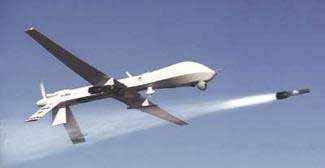By: Jason Naselli from the Atlantic Community – Berlin.
At Issue: The EU must restructure its Common Security and Defence Policy based on economic and operational realities. It should emphasize narrow, logistically feasible operations over broad outlines, clearly delineate its partnership with NATO, and take a longer term view when developing operational strategies.
All of the recommendations in this memo come from the comments on a recent article that argued for abandoning the EU’s Common Security and Defence Policy (CSDP). Atlantic Community members jumped to its defense, affirming the necessity of the CSDP to provide an outlet for strictly European defense concerns (Frost), as an option when the US presence would make NATO politically unpalatable, like in South Ossetia (Thew), and as a demonstration of Europe’s commitment to its own defense.
However, members agree that the CSDP as currently constituted is problematic for the practical application of the agenda, duplicates to little effect some NATO structures (McCartin), and, with its logistical issues, has failed at projecting the “prestige” of an independent Europe (Seidler). To this end, the recommendations below aim at redefining the CSDP to be a more effective and practical policy.
1. Define the CSDP by capabilities, not aspirations.
The current Common Security and Defence Policy has broad, ambitious goals, but has not had the capacity to realize them independently from the United States, and has resorted to extrapolating its wider potential out of smaller, more focused missions (Smyth). With most defense forces now cutting back in an unfavorable economic climate, this situation is unlikely to change in the near term.
Therefore, the CSDP should be redefined with a more specific mandate that takes into account two factors, cost and feasibility, for every goal it defines. Atlantic Community members believe that when these are fully considered, concentrating on more civilian-oriented missions like monitoring and policing (such as the current operations in Georgia and the former Yugoslavia) will be the most efficient use of available resources.
2. Develop a codified partnership with NATO which clearly defines responsibilities.
Though there have been numerous declarations of EU-NATO cooperation and coexistence, most notably Berlin Plus, there has still not been a clear definition of what a NATO mission looks like as opposed to a CSDP mission. Better realization of the exact makeup of the CSDP will help ameliorate this issue, but members believe that a more formal outline is needed to specify how the two organizations will interact.
Such an outline should include assigning civilian policing and monitoring missions to which the EU is best suited to the CSDP, and placing broader military action in the hands of NATO. This set-up would require defining more clearly the security arrangements of non-NATO EU members like Cyprus (Noniewicz). Priority should be given to codifying how the two forces will interact if assigned to the same mission or theater (Clapp). Berlin Plus should also be expanded to allow NATO to draw upon EU resources if it feels they are better suited for a particular mission (McCartin). Taking into account economic realities, territorial defense should be a primary NATO responsibility and, beyond basic readiness of national forces, efforts in this area should not be duplicated by the EU.
3. Integrate more fully the long-term goals of the EU and NATO into the CSDP.
In order for EU forces to be effective, they need clearly defined missions that serve a broader strategy. Setbacks like the EU police training mission in Afghanistan are often due to poorly articulated goals. The EU must first define its more general foreign policy outlook and what it wants to achieve, and shape the CSDP to fit this vision. In addition, the EU should be more transparent in its decision-making process with its NATO allies, as the potential for competing frameworks and counterproductive duplication is heightened when the two organizations do not properly communicate. Incorporating a coherent foreign policy vision would potentially require the EU to solve more acute organizational issues, such as its policy on further expansion, before turning to a restructuring of the CSDP (Hauss).
Disclaimer: Any views or opinions expressed in this article are solely those of the authors and the news agencies and do not necessarily represent those of the NATO Council of Canada. This article is published for information purposes only.



